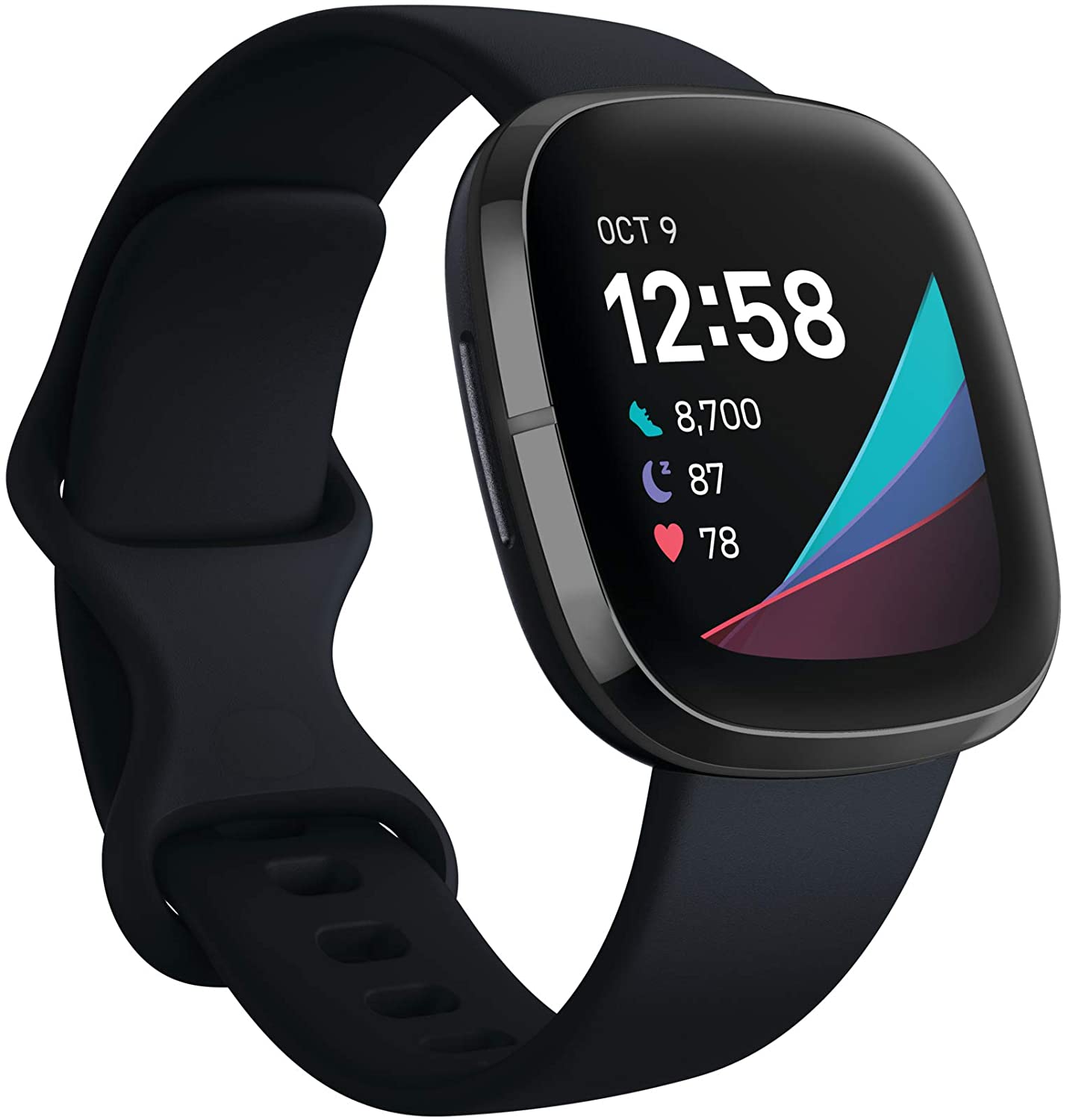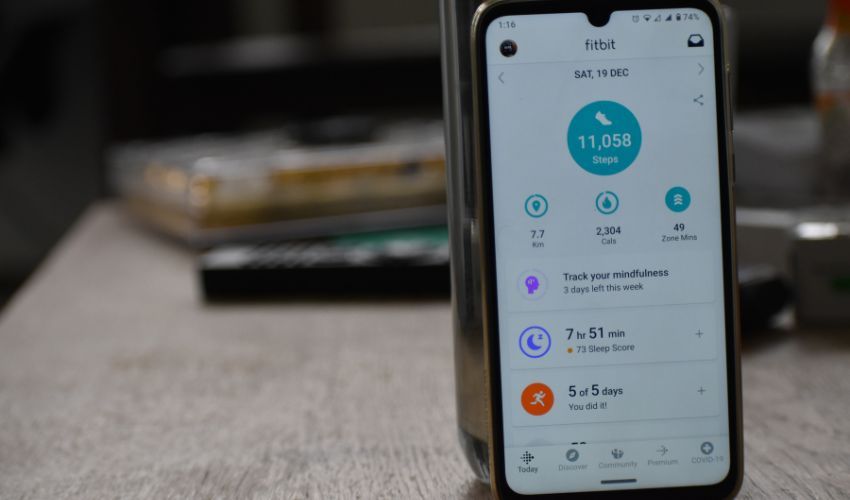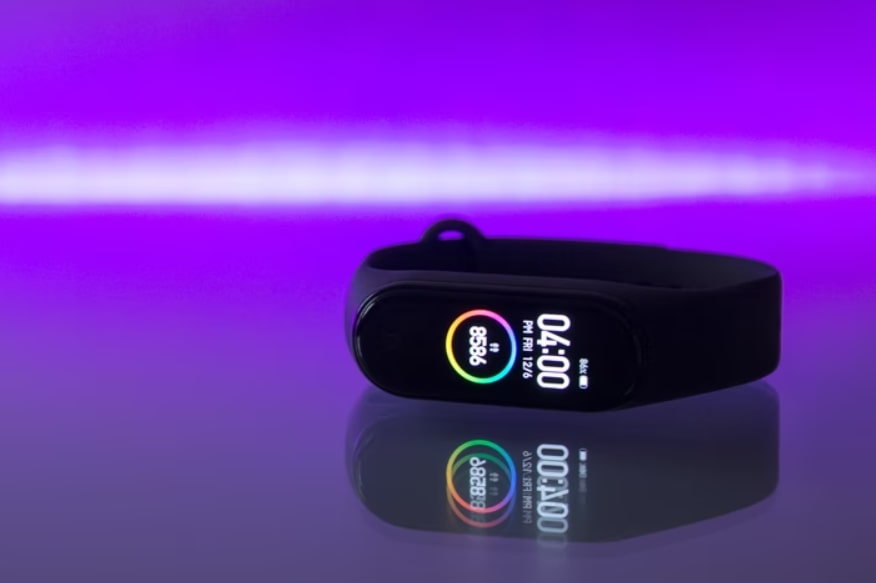Fitbit: A Popular Choice for Fitness Tracking
Fitbit has gained significant popularity as a fitness tracking device, offering users a comprehensive solution to monitor their health and wellness. Its wide range of features includes a calorie counter, which is essential for individuals aiming to achieve specific weight goals. By estimating the number of calories burned during various activities, Fitbit’s calorie counter enables users to make more informed decisions about their diet and exercise routines. However, the accuracy of this feature has been a topic of discussion, leaving many to question the reliability of the Fitbit calorie counter.
How Does Fitbit’s Calorie Counter Function?
Fitbit’s calorie counter is a sophisticated feature designed to estimate the number of calories burned during various activities. It calculates caloric expenditure using complex algorithms that take into account several factors, including the user’s age, weight, and heart rate. By continuously monitoring heart rate, Fitbit’s calorie counter can more accurately gauge the intensity of a user’s activities and adjust calorie estimates accordingly. For instance, during high-intensity workouts, the heart rate increases, signaling a higher caloric burn. Fitbit’s calorie counter capitalizes on this data to provide a more precise estimate of the calories burned.
Comparing Fitbit’s Calorie Count with Other Methods
To assess the accuracy of Fitbit’s calorie counter, it is essential to compare it with other methods available for tracking caloric expenditure. Manual calorie tracking, which involves logging activities and food intake manually, can be time-consuming and less precise. However, it allows users to maintain a detailed record of their daily caloric intake and expenditure. On the other hand, laboratory tests, such as metabolic chamber studies, provide highly accurate measurements of caloric expenditure but are impractical for everyday use due to their high cost and limited accessibility.
When comparing Fitbit’s calorie count with these methods, it is crucial to acknowledge the device’s limitations. While Fitbit’s calorie counter offers a convenient and accessible means of tracking caloric expenditure, it may not be as precise as laboratory tests. Nevertheless, it generally provides more accurate estimates than manual calorie tracking, making it a valuable tool for users aiming to monitor their weight loss progress.
Factors Affecting the Accuracy of Fitbit’s Calorie Counter
Various factors can influence the accuracy of Fitbit’s calorie counter, making it essential for users to understand these elements to optimize their tracking experience. Proper wrist placement is crucial for accurate heart rate monitoring, which directly affects the calorie count. Wearing the device too loosely or high on the arm may result in inaccurate heart rate readings and, consequently, less precise calorie estimates.
Individual metabolic rates also play a significant role in determining the accuracy of Fitbit’s calorie counter. Each person’s metabolism is unique, and factors such as genetics, muscle mass, and hormonal balances can impact the rate at which calories are burned. Fitbit’s calorie counter may not account for these individual differences, potentially leading to inaccuracies in calorie estimates.
Furthermore, the type of activity being tracked can affect the precision of Fitbit’s calorie counter. Activities with consistent movement patterns, such as running or cycling, are generally more accurately tracked than those with irregular movements, like weightlifting or dancing. Fitbit’s algorithms may struggle to accurately measure the intensity and duration of these less predictable activities, leading to less precise calorie estimates.
Real-World User Experiences: A Closer Look
To gain a better understanding of the practical accuracy of Fitbit’s calorie counter, it is essential to examine real-world user experiences and reviews. User feedback offers valuable insights into the device’s performance under various conditions and limitations, providing a more comprehensive perspective on its effectiveness.
Many users appreciate Fitbit’s calorie counter for its convenience and accessibility, praising its ability to estimate caloric expenditure throughout the day accurately. The feature’s integration with other tracking capabilities, such as step counting and sleep monitoring, adds to its appeal for those seeking a holistic approach to fitness and wellness. However, some users have expressed concerns about the calorie counter’s accuracy during specific activities or when compared to manual tracking methods.
For instance, users have reported discrepancies in calorie estimates during high-intensity interval training (HIIT) workouts or strength training sessions. These activities often involve irregular movements and varying intensities, which can challenge Fitbit’s algorithms and result in less precise calorie estimates. Additionally, users have noted that discrepancies between Fitbit’s calorie count and manual tracking methods can be significant, particularly when tracking food intake and caloric expenditure manually.
Despite these limitations, Fitbit’s calorie counter remains a popular and valuable tool for many users. By acknowledging its potential shortcomings and employing strategies to enhance its accuracy, users can leverage Fitbit’s calorie counter as a useful component of their weight loss journey.
Improving the Accuracy of Fitbit’s Calorie Counter
To optimize the accuracy of Fitbit’s calorie counter, users can employ several strategies that enhance the device’s ability to track caloric expenditure effectively. By following these recommendations, users can ensure that their Fitbit provides a more precise estimate of the calories burned during various activities.
First, regularly updating personal data, such as age, weight, and heart rate, is crucial for maintaining accurate calorie estimates. As these factors change over time, they can significantly impact the number of calories burned during physical activities. By keeping this information up-to-date, users can help Fitbit’s algorithms generate more accurate calorie estimates tailored to their current physiological status.
Wearing the device correctly is another essential factor in enhancing the accuracy of Fitbit’s calorie counter. Ensuring that the device is securely fastened on the wrist, with the heart rate monitor in contact with the skin, allows for more precise heart rate tracking. This, in turn, leads to more accurate calorie estimates during both rest and physical activity.
Cross-verifying Fitbit’s calorie count with other tracking methods, such as manual calorie tracking or alternative fitness devices, can also help users gauge the accuracy of their Fitbit’s estimates. By comparing the results from multiple sources, users can identify any discrepancies and adjust their tracking methods accordingly.
Lastly, understanding the limitations of Fitbit’s calorie counter and acknowledging that it may not be 100% accurate is crucial for making informed decisions about weight loss progress. By employing these strategies and maintaining a realistic perspective on the device’s capabilities, users can effectively leverage Fitbit’s calorie counter as a valuable tool in their weight loss journey.
The Role of Fitbit’s Calorie Counter in Achieving Weight Loss Goals
Fitbit’s calorie counter plays a significant role in assisting users in achieving their weight loss goals by providing an estimate of the number of calories burned during various activities. This information, combined with data on caloric intake, enables users to maintain a calorie deficit necessary for weight loss. However, it is essential to emphasize that Fitbit’s calorie counter should be used as one component of a holistic approach to fitness and nutrition, rather than a standalone solution.
To effectively utilize Fitbit’s calorie counter in weight loss efforts, users should consider the following recommendations. First, establish a daily calorie deficit target, taking into account individual factors such as age, weight, and activity level. Fitbit’s calorie counter can then be used to monitor the number of calories burned throughout the day, ensuring that the established deficit is maintained. Regularly reviewing this data can help users adjust their exercise routines and dietary habits as needed to achieve their weight loss objectives.
Additionally, incorporating a variety of physical activities into a daily routine can further enhance the effectiveness of Fitbit’s calorie counter in weight loss efforts. The device is generally more accurate in tracking structured activities, such as running or cycling, than less predictable movements, like dancing or weightlifting. By participating in a diverse range of exercises, users can ensure that their Fitbit’s calorie estimates are as precise as possible, ultimately contributing to a more successful weight loss journey.
Lastly, it is crucial to remember that weight loss is a complex process influenced by numerous factors, including genetics, lifestyle, and mental well-being. While Fitbit’s calorie counter can provide valuable insights into caloric expenditure, it should be used in conjunction with a balanced diet, consistent exercise, and stress management techniques to achieve optimal weight loss results.
Making Informed Decisions: Weighing the Pros and Cons
In conclusion, Fitbit’s calorie counter offers users a convenient and accessible means of tracking caloric expenditure during various activities. While it is essential to understand the factors that can influence the accuracy of this feature, Fitbit’s calorie counter remains a valuable tool for those seeking to monitor their weight loss progress and make informed decisions about their fitness and nutrition habits.
When considering the question “how accurate is the Fitbit calorie counter?”, it is crucial to acknowledge that no single tracking method is 100% accurate. Manual calorie tracking and laboratory tests, while more precise, are impractical for everyday use and may not account for individual differences in metabolic rate and activity levels. Fitbit’s calorie counter, on the other hand, provides a more realistic and accessible solution for monitoring caloric expenditure, even if it is not as accurate as other methods.
To maximize the effectiveness of Fitbit’s calorie counter and ensure accurate tracking, users should employ strategies such as regularly updating personal data, wearing the device correctly, and cross-verifying with other tracking methods. By combining these practices with a balanced diet, consistent exercise, and stress management techniques, users can effectively utilize Fitbit’s calorie counter as one component of a holistic approach to fitness and nutrition.
Ultimately, the decision to rely on Fitbit’s calorie counter for tracking weight loss progress should be based on a thorough understanding of its capabilities and limitations. By weighing the pros and cons and making informed decisions about their use of this feature, users can confidently integrate Fitbit’s calorie counter into their weight loss journey and work towards achieving their goals.






